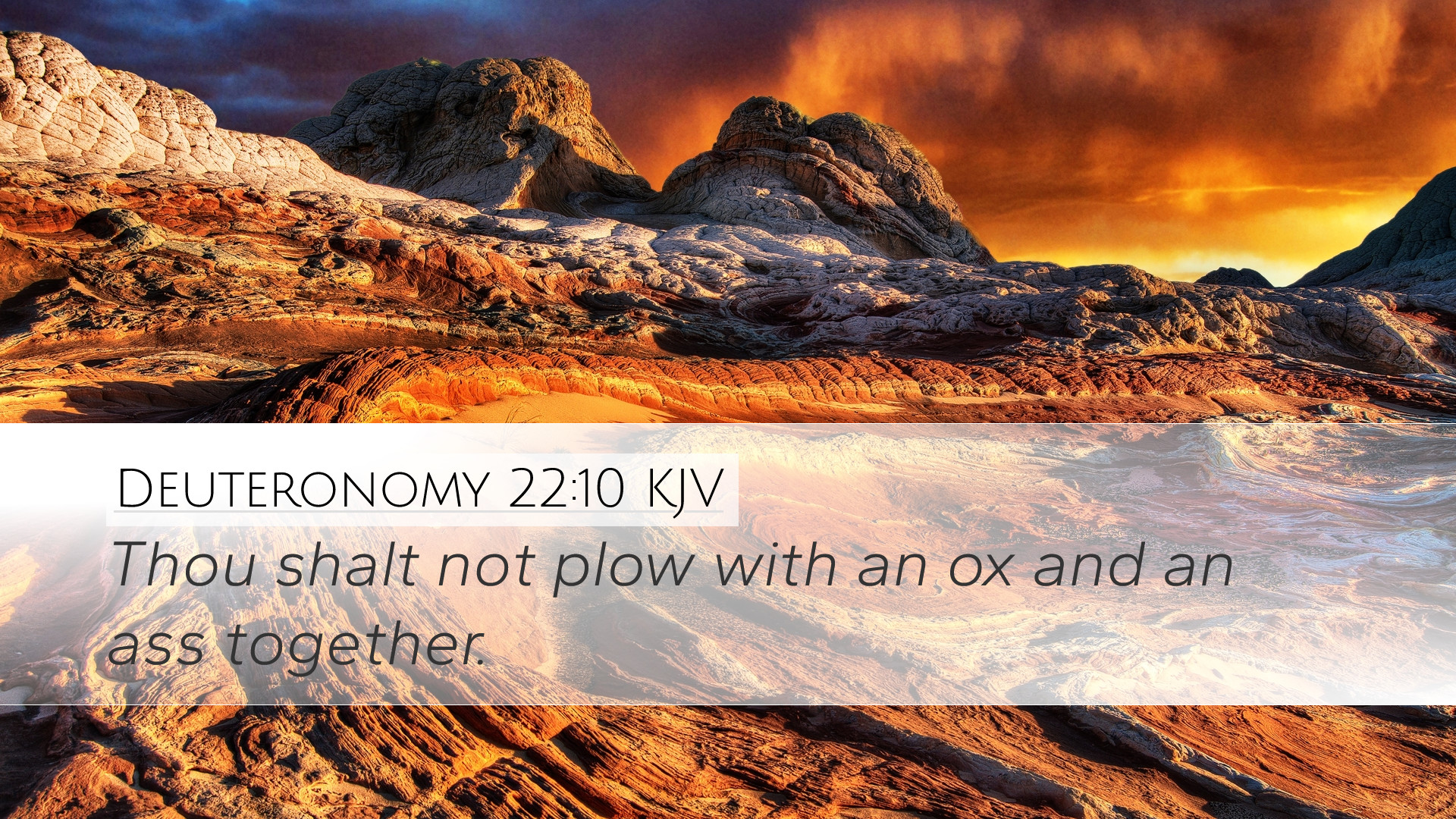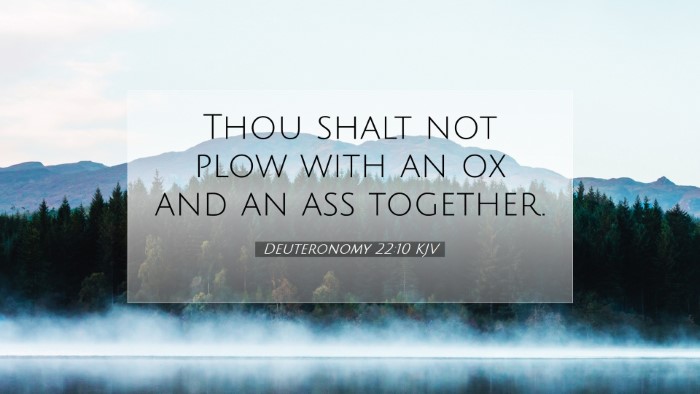Commentary on Deuteronomy 22:10
Verse: "Thou shalt not plow with an ox and an ass together." (Deuteronomy 22:10)
Introduction
This verse is part of a collection of laws provided to the Israelites outlining various ethical and ceremonial principles meant to guide them in their daily lives and interactions.
Contextual Significance
Understanding this commandment requires consideration of its cultural and historical context. The agricultural societies of ancient Israel relied heavily on the work of animals, and the manner in which they were employed was of great significance.
Literal Purpose
According to Matthew Henry, the literal interpretation of this law serves to prevent inefficiency and to uphold the principle of uniformity. By prohibiting the yoking of an ox (a clean animal) and an ass (an unclean animal), the law promotes the idea that the laboring animals should be of a similar kind, which would lead to more effective work and a harmonious, recognizable pattern in labor.
Symbolic Interpretation
Albert Barnes further elaborates on the symbolic interpretation of this commandment. He suggests that the disparity between the ox and the ass is emblematic of broader themes in scripture regarding opposites. This theme extends beyond agriculture to spiritual and ethical realms.
- Spiritual Associations: The ox can symbolically represent strength, holiness, and service to God, while the ass can represent a level of uncleanliness or lower status. Thus, pastors and theologians might discern a deeper truth about the nature of partnership and cooperation in Christian life.
- Ethical Considerations: This law prompts reflection on whom and how we partner with in life and ministry. Just as an ox and an ass should not be yoked together for practical reasons, believers are cautioned against differing moral and spiritual partnerships (cf. 2 Corinthians 6:14).
Theological Implications
Adam Clarke points out the broader theological implications of this law. The decision to maintain distinctions among creatures is a manifestation of God's order and design in creation. The principle of not mixing different kinds extends to various aspects of life.
- Community Relationships: Believers are called to form relationships that foster unity and shared values. This law challenges modern Christians to reflect on the nature of their alliances, specifically cautioning against partnerships that may dilute their faith or compromise their witness.
- Covenantal Living: The Israelites’ obedience to these laws was tied to their covenant relationship with God. Understanding and applying these principles today can remind believers of the call to live in ways that honor God's holiness.
Practical Applications
In considering the practical language of Deuteronomy 22:10, pastors, students, and theologians can draw several applications for community life and personal discipline:
- Christian Partnerships: Evaluate partnerships in church settings, ensuring they align with biblical values and principles. Relationships in fellowship, work, or even marriage should reflect a shared faith and purpose.
- Unity in Diversity: While recognizing the beauty of diversity, there is a clear biblical precedent for maintaining doctrinal and ethical unity. Avoiding mixed influences aids in maintaining a strong and pure church witness.
- Holistic Living: As one applies scripture, these laws can foster a holistic approach to life, promoting the idea that all aspects of existence, from relationships to work, should reflect God's order and integrity.
Conclusion
Deuteronomy 22:10, while practical and simple on the surface, invites deeper exploration of theological, ethical, and communal implications. It serves as a reminder that God’s instructions for His people create order in the chaos of a fallen world. Whether examining personal partnerships or church affiliations, this scripture prompts believers to seek harmony and integrity, cultivating a life reflective of God’s design.
Through the insights of Matthew Henry, Albert Barnes, and Adam Clarke, we are encouraged to appreciate the profound truths underlying even the most seemingly mundane commandments, affirming the belief that God's word instructs and informs every aspect of our lives.


